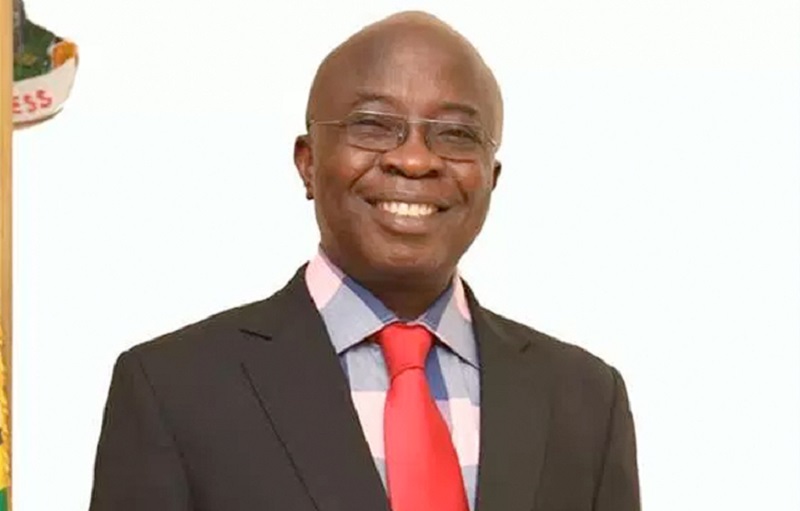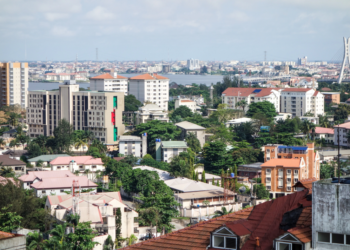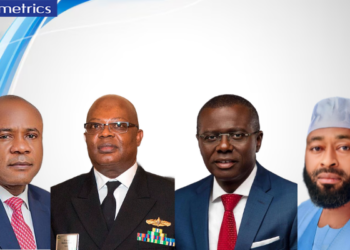A member of the Lagos State House of Assembly, Setonji David, has insisted that the state will go ahead with the implementation of its recently signed VAT Law despite a stay of execution obtained by the Federal Inland Revenue Service (FIRS) from the Court of Appeal in Abuja last Friday.
The lawmaker said that the state government would continue the collection of VAT until the court of appeal rules otherwise.
According to Punch, this was made known by the lawmaker, who represents Badagry II Constituency in the House, while appearing as a guest on a Channels Television breakfast programme, Sunrise Daily, on Monday.
READ: VAT: Which states will benefit from court ruling?
What the Lagos Lawmaker is saying
David who said that the state has always clamoured for true federalism, lamented that the state generates over 55% of the VAT in Nigeria but gets a paltry 10%.
He said, “In Lagos State, we have always clamoured for true federalism. This is consumption tax from the people of Lagos and it should be domiciled in Lagos and used for the people of Lagos. There are so many hassles that have to do with federalism that we are practising.
“We generate over 55% of the VAT in Nigeria and we get a paltry sum of 10%. Is that fair for a population of over 24 million? We are happy that the Rivers State Government went to court and the court was very clear that VAT was supposed to be a state affair. We have no choice but to follow suit.”
READ: Key provisions under consideration in the Lagos VAT law
When asked whether Lagos State would go ahead with the implementation of the law despite the Court of Appeal’s ‘maintain status quo’ ruling, the lawmaker said, “The status quo is that we have enacted the law in Lagos and the law is in existent and I believe strongly that until another judgement is passed by the Court of Appeal to the extent that what we have done is wrong, the law subsists.
“By our own understanding, what subsists in Lagos is our own law, until that law is set aside by the Court of Appeal. So, as far as Lagos is concerned, VAT in Lagos will be collected by the Lagos State Government.”
READ: Nigeria’s VAT collection surges to N496.4 billion in Q1 2021
On the speedy passage and enactment of the VAT law in Lagos, David said the bill passed through the normal process though it was passed and signed into the law in less than a week.
He said, “It depends on the exigency of the situation, we have passed bills like that, there is nothing abnormal about it.’’
In case you missed it
- Recall that Governor Babajide Sanwo-Olu of Lagos State, a few days ago signed the state VAT bill into law after it was passed by the speedy passage by the Lagos State House of Assembly, following in the foot step of the Rivers State government.
- A federal high court in Port Harcourt had ruled that River State is legally empowered to collect VAT in the state and not the FIRS.
- Following an appeal by FIRS, Justice Haruna Tsammani of the Appeal Court adjourned to September 16 to hear the application by Lagos, who wanted to be joined as party to the case which involves River State and asked all parties to maintain status quo.
- VAT is a consumption tax paid when goods are purchased and services are rendered. It is charged at a rate of 7.5 per cent.




















Yet another person occupying high public office in Nigeria who has no clue about what he is talking about. Instead of going on national television to make a fool of himself, he should have deferred to the state attorney-general.
Lagos state voluntarily submitted itself to the personal jurisdiction of the Appeals Court sitting in Abuja by seeking to join the case between Rivers State and the FIRS . It is therefore bound by the injunctive order of the court.
The interpretation of status quo is that, all positions be maintained as at the date of, in this case, the ruling in appeal court.
So what are the positions as at the date and time of higher court judgement?
1. There is a subsisting judgement in a high court, the Appeal Court judgement did not expressly set aside the lower court judgement.
2. The Rivers State government had a VAT law put in place, through which it is authorised to collect VAT AND NO LONGER FIRS.
3. The Lagos State government achieved exactly the position in 2 above within one (1) week.
4. The two states have commenced collection of VAT as at the date of judgement by the superior court. And FIRS has stopped collections in the two states.
5. This is the disputed position of affairs between and across these levels and organs of government as at the date and time of appeal court ruling. And
5. This is the status quo.
6. Unless and of course if it is expressly stated by the ruling of the appeal court, that the two states should not collect VAT, that the assented states laws on VAT are invalidated, then the status quo shall be the reversal to old order, where FIRS has been granted authority to resume collection of VAT in the two states.
7. And since appeal court can only make final judgement after trials, prosecution, defence and evidences, the status quo in this case is what is detailed in 4 above.
8. My humble opinion only please.